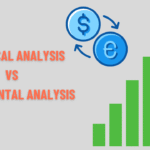Definition:
Altcoins, which stands for “alternative coins,” denote any cryptocurrency that is not Bitcoin. This term includes thousands of digital currencies that have emerged since the launch of Bitcoin in 2009. Although Bitcoin is the first and most recognized cryptocurrency, altcoins provide a variety of features, functionalities, and applications within the blockchain ecosystem.
Categories of Altcoins:
Altcoins can be classified into several categories based on their purposes, functions, and underlying technologies:
- Forks of Bitcoin:
– These cryptocurrencies are created by modifying Bitcoin’s code. Examples include Bitcoin Cash (BCH) and Bitcoin SV (BSV), which seek to improve transaction speed and capacity.
- Ethereum and Smart Contracts:
– Ethereum (ETH) ranks as the second-largest cryptocurrency by market capitalization and introduced the idea of smart contracts—self-executing agreements with the terms directly encoded. Numerous altcoins, referred to as ERC-20 tokens, are developed on Ethereum’s blockchain.
- Stablecoins:
– Stablecoins are linked to a reserve asset, such as the US dollar or gold, to reduce volatility. Examples include Tether (USDT) and USDC. They aim to offer the advantages of cryptocurrency while preserving a stable value.
- Privacy Coins:
– These cryptocurrencies prioritize enhanced privacy features. Notable examples include Monero (XMR) and Zcash (ZEC), which utilize techniques to obscure transaction details.
- Utility Tokens:
– Utility tokens are intended to grant access to a product or service within a specific ecosystem. For instance, Binance Coin (BNB) can be utilized to pay transaction fees on the Binance exchange.
- Governance Tokens:
– Governance tokens enable holders to engage in decision-making processes within a blockchain protocol. For example, tokens like Uniswap’s UNI allow users to vote on protocol upgrades or modifications.
- Doge-inspired memes and novelty coins:
– Some altcoins are inspired by memes or novelty concepts, such as Dogecoin (DOGE), which has gained popularity for its community-driven approach and humorous branding.
Significance of Altcoins:
Diversity and Innovation:
Altcoins play a vital role in enhancing the diversity of the cryptocurrency market. Numerous altcoins provide innovative solutions that can propel the technology behind blockchain forward.
Investment Opportunities:
Investors frequently look to altcoins for the possibility of greater returns. While Bitcoin is regarded as a reliable store of value, many altcoins present substantial growth potential, though they come with increased risks.
Market Dynamics:
Altcoins can significantly impact the performance of the cryptocurrency market. A notable shift in altcoin prices may result in fluctuations in Bitcoin’s price, often termed as “altcoin season” when altcoins surpass Bitcoin in terms of growth.
Specialized Functions:
Numerous altcoins are designed for specific functions or sectors, such as supply chain management (VeChain), decentralized finance (DeFi) (Aave, Compound), or applications related to the internet of things (IoT) (IOTA).
Risks and Challenges:
Volatility:
The altcoin market is well-known for its extreme volatility. Prices can change dramatically within short timeframes, resulting in considerable gains or losses.
Regulatory Scrutiny:
Altcoins frequently find themselves under regulatory examination due to issues related to fraud, market manipulation, and adherence to securities regulations.
Lack of Adoption:
A significant number of altcoins do not enjoy widespread adoption or practical use cases, which raises questions about their long-term sustainability.
Security Issues:
Certain altcoins have been associated with major hacks or fraudulent activities, resulting in financial losses for investors. It is essential to perform comprehensive research prior to making any investments.
Conclusion:
Altcoins represent a broad range of cryptocurrencies that expand the possibilities of blockchain technology beyond Bitcoin. While they offer numerous opportunities for investment and innovation, they also carry significant risks. Investors should perform due diligence, understand each altcoin’s unique value proposition, and consider their risk tolerance before diving into this dynamic market. As the cryptocurrency landscape continues to evolve, altcoins will undoubtedly play a crucial role in shaping the future of digital finance.


